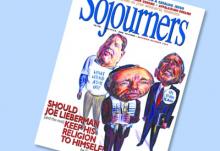Labor
For many of us, the hardest work we do is finding time to rest. Free time means not only the nourishment of freer individuals, but the nurturing of a free people—a society—that can take joy in family and community, govern itself democratically, achieve social justice, heal the environment, and seek its spiritual growth.
Spiritual Communities. The Free Time/Free People Campaign calls on spiritual communities to undertake efforts which affirm our religious obligation to change the present patterns of overwork. To feel a sense of dignity at work and to feel that our work is worthy and sacred requires that we see ourselves as free human beings. Spiritual communities can reach out to the labor movement, environmentalists, women’s organizations, forward-looking business leaders, neighborhood and community-based organizations, and family-oriented groups to secure these changes in American life.
American Political, Economic, and Cultural Leaders. Much of the public dialogue in America worries about unemployment or "disemployment," rather than overwork. But the two are intimately connected: Because many jobs are badly paid or chopped up into "temporary" or "part-time" by employers seeking to avoid paying benefits, many people are forced to take two or three part-time jobs in order to barely make enough money to meet basic needs. In this way "underwork" drives people to overwork. The Free Time/Free People Campaign calls on political, economic, and cultural leaders to enact change that will reduce the hours of work imposed on individuals without reducing their income.
Policy Changes. The Campaign encourages all people to work for policies aimed at ending or severely limiting compulsory overtime. Workers should not be forced into 60-hour weeks. Preventing this kind of overwork will open new full-time jobs for other workers at decent wages.
Participants in conversations about corporate responsibility and wages often use the same words to mean entirely different things.
Continuing their two-year vigil, locked-out Detroit newspaper workers brought their protests in May to the Washington, D.C. area home of Gannett Company CEO John Curley.
Despite anti-union violence, the United Farm Workers persevere in organizing strawberry pickers.

